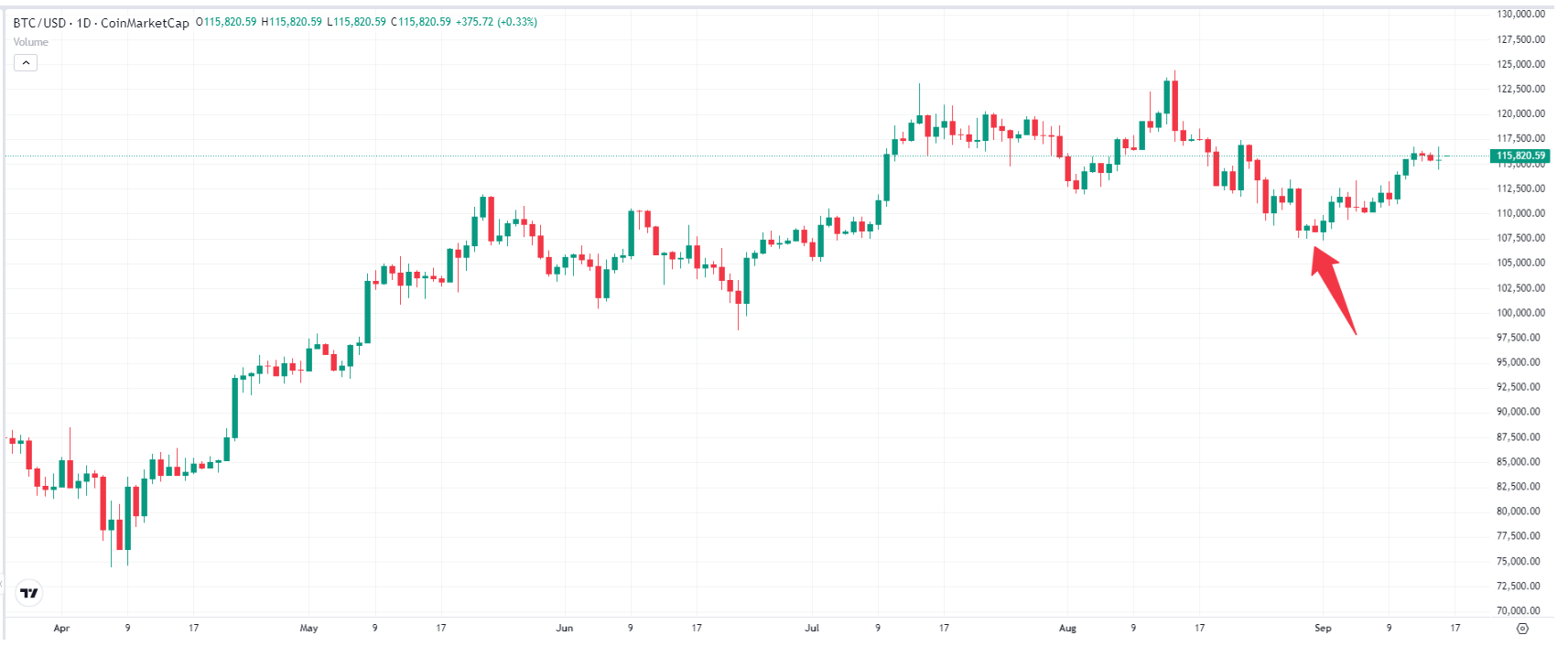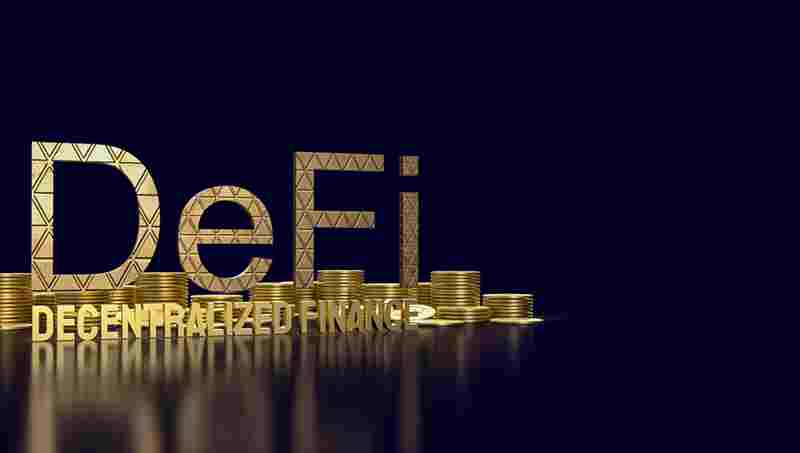Effects of Interest Rate Cuts: Impact of Fed's September Meeting on Crypto Market

Introduction
The United States is currently engaged in a global tariff war, heightening economic uncertainty. As trade tensions escalate, investor expectations for a Federal Reserve rate cut have grown stronger. Although the Fed held rates steady in its first three meetings this year, the fourth meeting is scheduled for September 17, with markets widely anticipating a 25 basis point cut.
But what does a rate cut actually do? What does a 25 bp cut from the Fed mean? And how might it affect the crypto market? This article explores the mechanics of rate cuts, their economic impact, implications for digital assets, and strategies for navigating the volatility.
What Is a Rate Cut and Why Does It Matter?
A rate cut refers to a central bank lowering its benchmark interest rate. For example, if a country’s current rate is 4.25% and the central bank cuts it by 25 basis points, the new rate becomes 4%. Rate cuts are not arbitrary — they’re typically implemented when economic conditions deteriorate.
When growth slows, unemployment rises, and consumer spending weakens, central banks may reduce rates. Here’s how that helps:
Function | Impact |
Stimulates consumption & investment | Lower borrowing costs encourage spending and business investment, boosting economic activity |
Reduces unemployment | Increased investment and spending lead to more hiring |
Influences capital flows | Rate cuts may weaken the currency, attracting foreign capital |
Drives risk asset demand | Investors seek higher returns in riskier assets like stocks and crypto |
Supports economic recovery | Acts as a stimulus during recessions, helping economies rebound |
How Does a Fed Rate Cut Affect the Crypto Market?
The Federal Reserve’s decisions carry global weight, often influencing other central banks. A rate cut by the Fed typically benefits crypto markets in several ways:
Impact Area | Mechanism | Crypto Market Effect |
Market Liquidity | More USD liquidity released | Capital flows into risk assets like BTC and equities |
U.S. Dollar Index (DXY) | DXY tends to decline | USD-denominated assets like BTC and ETH appreciate |
Leverage Costs | Lower financing rates | Miners expand operations; perpetual contract volumes rise |
Institutional Allocation | Lower yields on bonds | Net inflows into BTC/ETH ETFs and trusts |
Regulatory Climate | Easing cycles often soften regulatory tone | Crypto legislation may accelerate |
Market Sentiment | Risk appetite increases | Altcoins like ETH, SOL, XRP may rally alongside BTC |
Faster adoption (e.g., spot ETF approvals).
Crypto Performance During Rate Cut Cycles
Historically, Fed rate cuts have coincided with bullish crypto trends, marked by rising prices, increased capital inflows, and improved investor sentiment.
Rate Cut Phase | Policy Shift | Market Traits | BTC Performance | ETH Performance |
2015–2018 | Pause after initial hikes | Institutional interest, ICO boom | +1,200% (200 → 2,600) | +3,400% (0.9 → 3) |
2019–2020 | Preventive cuts (75 bps) | Rise of DeFi, futures launch | +366% (3,000 → 14,000) | +480% (130 → 750) |
2020–2021 | Emergency cuts + QE | Institutional inflows, NFT explosion | +1,700% (3,800 → 69,000) | +1,900% (100 → 2,000) |
2023–2024 | Anticipated easing (100 bps) | Spot ETF approvals, RWA narratives | +80% (25K → 45K) | +60% (1,500 → 2,400) |
While crypto tends to rally during easing cycles, it’s not guaranteed. In March 2020, BTC dropped 50% during the initial rate cut due to a liquidity crunch. Also, rate cuts often coincide with Bitcoin halving cycles, so gains can’t be attributed solely to monetary policy.
Fed Outlook and Crypto Market Forecast
By late August 2025, Fed officials including Governor Waller and San Francisco Fed President Daly signaled a dovish shift, helping Bitcoin stabilize near $107,000. On September 5, weak U.S. jobs data reinforced expectations for a rate cut, pushing BTC back toward $116,000.
 Bitcoin Price Chart – Source: TradingView
Bitcoin Price Chart – Source: TradingView
On September 17, the Fed will hold its fourth meeting of the year. Markets expect a 25 bp cut to bring rates to 4.00%–4.25%. According to CME’s FedWatch tool, the probability of a 25 bp cut is 95.9%, while a 50 bp cut stands at 4.1%. Major institutions like JPMorgan, Morgan Stanley, Goldman Sachs, and Fitch also forecast a 25 bp reduction.
BitMine Chairman Tom Lee told CNBC that if the Fed cuts rates, Bitcoin and Ethereum could see significant gains over the next three months. Crypto services firm Matrixport echoed this view on September 15, stating: “A dovish environment is more likely to extend bullish momentum and could fuel Bitcoin’s push to new highs.”
However, some analysts argue that the rate cut is already priced in. BTC Markets’ Rachael Lucas noted: “Weak U.S. employment data has raised expectations for a dovish Fed stance, but markets have already absorbed much of this.”
Kronos Research CIO Vincent Liu added: “Even with a rate cut, Bitcoin may remain subdued. Without stronger ETF inflows or real liquidity expansion, $120,000 remains a tough ceiling.”
How to Navigate Market Shifts from Rate Cuts
While a Fed rate cut could boost crypto prices, if expectations are already priced in, markets may react with a “sell the news” dip. If the Fed surprises with a more aggressive cut, bullish sentiment could intensify. Investors should remain cautiously optimistic and adopt strategies to manage volatility and risk.
Assess Risk ToleranceLow rates attract capital, but investors should evaluate their own risk profile before increasing exposure to crypto assets.
Diversify DynamicallyHold a mix of crypto assets to spread risk. Before the cut, accumulate BTC, ETH, and stablecoins. After the cut, rotate into high-beta altcoins. Toward the end of the cycle, take profits and shift back to stablecoins.
Explore DeFi OpportunitiesLower rates may boost DeFi activity. Consider yield farming or liquidity mining on decentralized platforms for higher returns.
Maintain a Long-Term ViewRate cuts unfold over months or years. Don’t chase short-term moves — stay patient and avoid “buy high, sell low” behavior.
Limit Leverage ExposureRate cuts can amplify volatility. Use leverage cautiously to avoid losses from sudden price swings.
Conclusion
The Fed’s rate cut decision is a major bullish catalyst for crypto — but it comes with uncertainty. Investors should understand the economic rationale behind the move and adjust strategies accordingly. Staying flexible, informed, and disciplined is key to thriving in crypto’s fast-moving environment.








